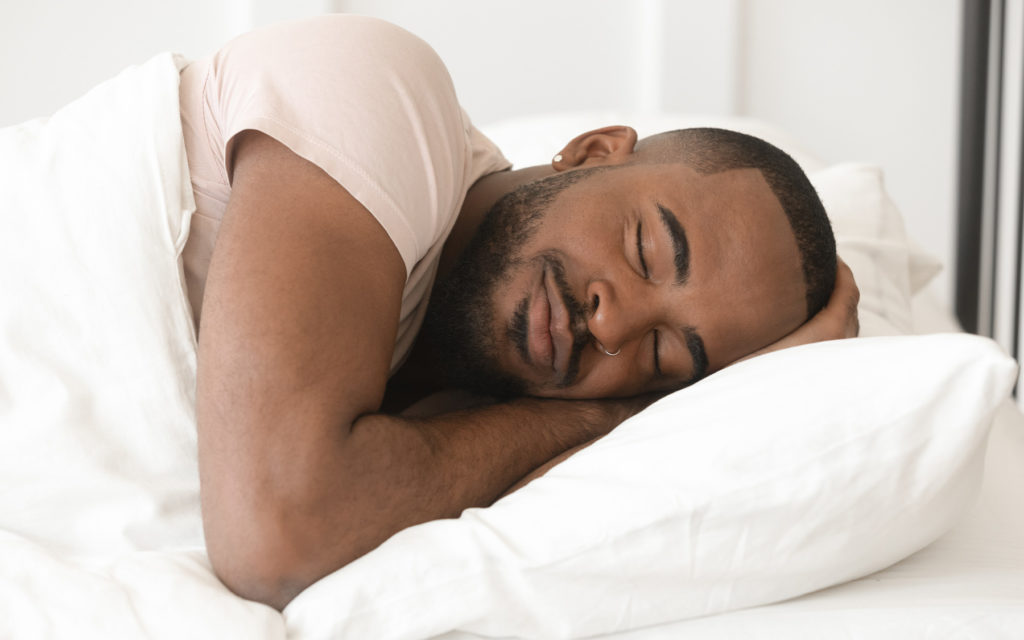
When was the last time you had a good night’s sleep, where you woke up without your alarm blaring and felt energized and refreshed? According to the CDC, one-third of adults and more than two-thirds of high school students report inadequate amounts of sleep.
In addition to strategies to improve sleep (sleep hygiene) like including regular exercise, getting regular exposure to daytime light, establishing a bedtime routine, and sleeping in a dark, cool bedroom, food choices also play an important role in quality of sleep.
Foods to Consume to Promote Better Sleep
- Some studies show short sleepers (sleep less 7 hours per night) don’t eat enough protein throughout the day. Include plain Greek yogurt, nut butter, skinless poultry, seafood, eggs, nuts and seeds, legumes (dried beans and peas like chickpeas, lentils, and pinto beans), edamame, or tofu with every meal (and most snacks!) to consume optimum amounts of protein.
- Tart cherries help improve levels of melatonin. Melatonin promotes sleep. Bananas, pineapple, and oranges are also good sources of melatonin. Combining all of these in a fruit salad and serve it with half a cup of nonfat plain Greek yogurt for a great sleep-boosting snack.
- Walnuts are high in melatonin, serotonin, and total polyphenols, which help promote restful sleep. Try eating ½ to 1 ounces of walnuts 2 hours before bedtime.
- Foods high in tryptophan, an amino acid that produces serotonin to induce calmness and drowsiness, help promote sleep, especially when combined with whole grains. The best bedtime snack is one that contains both: think whole grain cereal such as plain oatmeal with milk, peanut butter on whole grain toast, or cheese and whole grain crackers.
- Two kiwis consumed about 2 hours before bedtime may enhance sleep. Combine the kiwi with ½ cup of low-fat cottage cheese, which is a good source of tryptophan, and you may see better benefits.
Foods to Avoid to Promote Better Sleep
- Most realize that caffeine helps us stay awake, but the combination of caffeine and sugar found in energy drinks has an even stronger effect. It’s easy to fall into a cycle that begins when you feel tired and lethargic, you consume energy drinks to feel like you have more energy, then find that the caffeine in the energy drink makes it more difficult to fall asleep at night, which leads to low energy levels the next day and… consuming more energy drinks.
- Many think that drinking alcohol in the evening helps us fall asleep, it actually disrupts sleep over the course of the night, prevents you from entering deeper stages of sleep. This causes you to wake up still feeling tired despite having spent an adequate amount of time in bed.
- Poor eating habits are also associated with poor sleep quality.
- Eating 30-60 minutes before going to bed can make it more difficult to fall asleep. When we eat foods higher in fat and calories –- chips, cookies, or ice cream an hour before going to bed, it’s even more difficult to fall asleep.
DISCLAIMER: These statements have not been evaluated by the FDA. The information is for informational purposes and is not intended to treat, diagnose or cure any illness. Consult a physician before taking any action.
Want to contribute great content?
We are looking for contributors provide our readers with great healthy content to encourage positive living. If you're interested in becoming a contributor pease email us at blog@movitajuicebar.com